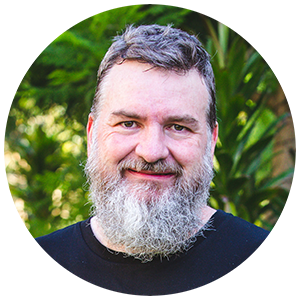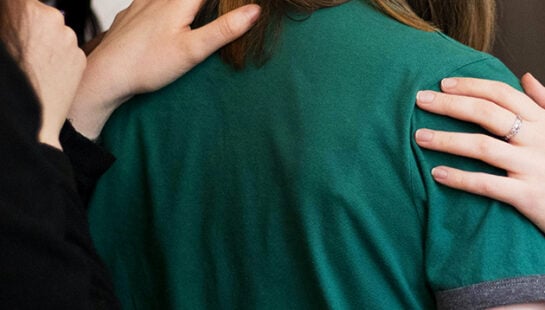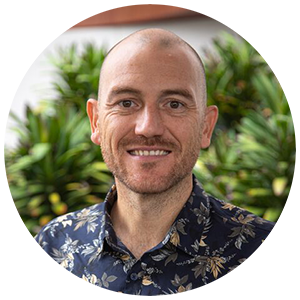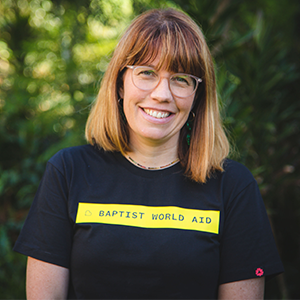Last year, my wife and I spent a few days walking Hadrian’s Wall across the top of England. It was something we’d planned to do for our 30th Wedding Anniversary, but it got waylaid by COVID. And so, we spent our time during lockdown dreaming and planning.
As we were walking in June, all the advice was to pack for any weather, as things could turn quickly and, ‘it always rains’ when you walk the wall! Except that it didn’t! In fact, it was unbearably hot.
Over 30 degrees Celsius in the north of England is almost unheard of and by halfway through day two of our walk, we were in trouble. On the tops of ridges where there was no shade the sun was beating down on us. We’d used most of the water we were carrying by early afternoon. There was a long way to go and no easy way to get to a road or a village. I was cramping, and Vicki was starting to show the signs of heat exhaustion.
I looked to the sky longingly for a cloud—or a rescue helicopter. Neither appeared.
But we did meet several very kind people. One lady gave us directions to a bus stop and then met us as we arrived there and drove us to our accommodation. The host at the accommodation, saw our distress, and gave us care and excellent advice. And Branston, her shaggy black Spaniel, plonked himself on the sofa next to me for hours, keeping me company as I rehydrated and recovered.
My biggest lesson of that pilgrimage is that God intervenes in unexpected ways and receiving hospitality from strangers is a beautiful gift. Through acts of kindness and grace our burdens were lifted.
God intervenes in unexpected ways and receiving hospitality from strangers is a beautiful gift.
The Wisdom Of Pilgrimage
This makes me reflect on Jesus’ pilgrimage to the cross and especially on the role of Simon of Cyrene who was made to carry the heavy timber cross through the streets of Jerusalem. I’m sure it wasn’t in Simon’s planning when he set out on his pilgrimage from North Africa to Jerusalem for Passover. We can only imagine what brought him to that spot on that road at that time, but I’m confident he did not intend to be at the centre of the event that changed history.
The intersection of these two pilgrimages—a religious quest and a Roman death march—bring together two people in a moment of shared encounter.
‘As they led him away, they seized Simon, a Cyrenian, who was coming in from the country, and laid the cross on him to carry behind Jesus.’ (Luke 23:26, CSB)
The man, who perhaps came for a curious look at what was happening, was forcibly given a front row seat that, according to tradition, changed his life. We don’t know much about what happened to Simon after the crucifixion. Tradition says he became a follower of Jesus and travelled to Egypt as a missionary and was later martyred. There’s also a possibility that his sons became leaders in the early church.
Longing For Peace
As I meditate on this story, I am struck by the violence. Jesus beaten to the point of collapse, unable to carry the weight of the cross and on the way to the most violent of deaths. Simon, ‘seized,’ from the crowd and forced into carrying the wooden symbol of execution, most likely at the point of a spear.
Violence begets violence as those with power seek to maintain their grip on status and wealth.
It’s not an uncommon story even today. We look at the brokenness of the world and the violent acts in Myanmar, Ukraine and the Middle East. And we long again for the Prince of Peace!
I also reflect on another pilgrimage I took. This time in 2020, just before COVID locked down international borders. I had the privilege of visiting the work of our Christian Partners in Cambodia—another nation that has experienced unspeakable violence.
I call it a pilgrimage because it was. I don’t think I intended it to be, but it became a deeply spiritual encounter with God.
Forgiveness And Flourishing
I remember sitting in with a group of people in rural Cambodia, near the border with Thailand. This area was the final stronghold of the Khmer Rouge. The place Pol Pot retreated to as he desperately sought to hang on to power. It was a community where neighbour fought against neighbour. People were killed because they wore reading glasses—a definitive sign that they were the ‘intellectuals’ and needed to be disposed of.
There were about fifteen people in this meeting. They met together to manage the community finances. There were high levels of trust displayed in the group. This was made even more remarkable when I discovered, through storytelling, that a few of the people in the group were ex-Khmer Rouge soldiers. The perpetrators of violence and the families of their victims, working together for the flourishing of the village.
And in that moment, I caught a glimpse of the Prince of Peace. Through the careful stewardship of our Partners, Jesus was bringing an end to violence and a new season of forgiveness and flourishing. I was stirred with hope.
Once again, I was surprised by kindness and hospitality on a pilgrimage.
This Easter, as war, conflict and famine are again at the forefront of my mind, I also remember that the Prince of Peace is still at work. Through the violence he suffered, hope for flourishing still exists!



 Ed Devine
Ed Devine

 Meredith Benson,
Meredith Benson,